The Tyranny of Individualism in a Liberal Democratic Society
by Welf Herfurth
Found on: http://majorityrights.com/
(This article contains one sick photo. I included it in the article to show how perverted society has become, at least in my opinion - Welf Herfurth)
1. Introduction
This is an article divided up, roughly, into two halves. The first concerns liberalism, or what liberalism has become. It details a transition in liberalism – from a cult of elections and parliaments, to a cult of doing your own thing (even if that involves sexual and other debauchery). The second half outlines what I consider to be the New Right antidote to the poison of modern liberalism, and explores some of the ideas of a liberal democratic anti-intellectual, Karl Löwenstein, who, in 1937, wrote a paper describing some of the political techniques used by the fascist political movements of the time. Some of those techniques are still being used by nationalists around the world (Hungary, Sweden, Russia, Britain, etc.), and, in my opinion, we in Australia can apply them equally as successfully here.
2. What is liberalism really?
Nowadays, one can read, in the Western liberal democratic press, daily denunciations of General Musharaff of Pakistan and the Burmese Junta. The two dictatorships have attracted media attention recently because of their flagrant crackdowns on ‘liberal democratic’ political opponents (or at least, opponents who the Western media assumes are liberal democratic).
Now and then, other dictatorships and/or authoritarian regimes will occupy the spotlight. One recent case is Georgia, which is led by an American-backed liberal democrat, Mikhail Saakashvili, who came to power through an ‘Orange Revolution’-type coup (nicknamed the ‘Rose Revolution’) in 2003, but is now in danger of being overthrown, and now, as a result, has declared a state of emergency and is using state repression – including tear gas and rubber bullets – to subdue the populace.
A perennial target of the Western media is Vladimir Putin. Despite his massive support among the Russian people, and massive election results in his favor, the Western media still considers him to be ‘undemocratic’ and ‘illiberal’, and upholds his critics – small groups of ‘liberal democratic’ dissidents, who have no popular support, and no agenda beyond being anti-Putin – as being more ‘democratic’, and certainly more morally worthy.
So we have a collection of countries – Burma, Pakistan, Fiji, Russia and others – which are manifestly illiberal and democratic in the eyes of Western liberal democrats. But what is it, exactly, that makes our liberal democracies so good? Why are they preferable to these dictatorships and authoritarian regimes? The answer is, simply, that people in liberal democracies are ‘more free’ – in fact, they are ‘free to do their own thing’.
To explain. One of the objections the Western liberals have against Iran is that supposedly Iran (along with other conservative Islamic States) imposes a strict dress code upon women. Women are allowed to dress freely in the West, as well as engage in nude sunbathing and the like: part of that, in my view, is because of the Western cultural heritage (particularly in the northern European countries) which traditionally has given more freedom to women compared to, for instance, the Mediterranean cultures of North Africa and the Middle East. But according to the liberals, this freedom has nothing to do with the West and its cultural heritage, but is, or at least should be, universal. What is more, that freedom should be forced on to countries with a low regard for the freedom of women, and even on ones (like South Africa or Papua New Guinea) with a high incidence of rape. Israel is held up as a model to other Arab nations – ‘the only democracy in the Middle East’ – because of, among other reasons, its high degree of personal freedom (which translates into a thriving gay and ecstasy culture). Such a level of freedom is ‘Western’. Consistent liberals, however, will acknowledge that liberal freedom cuts both ways: a recent article in the British Guardian newspaper denounces the fact that the secularist regime in Tunisia encourages harassment of women wearing the hijab and men wearing beards.
A country needs more than a high level of personal freedom to qualify as a ‘democracy’ in the eyes of the West, of course. For one thing, there must be a separation of powers: the executive, judiciary and legislature must be separate. And, as Carl Schmitt would say, there must be debate: all legislatures must go through the farcical process of debating the pros and cons of each piece of legislation before the members vote on it (even though the passage of each bill is determined, well in advance, along party lines). The Israeli parliament, the Knesset, allows plenty of debate, all right – mostly on the topic of how best to kill, starve or drive out the Palestinians, or who to bomb first (Iran or Lebanon or Syria?). Because of the daily debates in the Knesset, Israel qualifies as a ‘liberal democracy’.
On top of that, there are other requirements: elections, a multi-party system…
These days, however, there are many countries which do have elections, and an ostensible multi-party system, which are still condemned as ‘un-free’ and ‘un-democratic’: Russia, Belarus, Iran, Syria, Egypt, Tunisia, Venezuela. The Western liberals claim that the governments of these respective countries repress the political opposition, fail to hold elections which are completely, a 100% ‘free and fair’ (that is, meeting the Jimmy Carter electoral observer-standard), reduce the legislature to a rubber stamp, and censor journalists. The worst thing about these countries is that they do not see changes of government: an opposition party is rarely, if ever, voted in: so they are de facto single party States. So, then, these countries are situated in the hazy no-man’s land between complete dictatorship and complete liberal democracy. (And even pro-Western countries like Singapore and Malaysia fit into this category). Some are worse (or better) on the liberal democratic scorecard than others: Russia and Syria tolerate opposition political parties more than Syria and Iran – just barely. In many cases, e.g. Russia, Belarus and Iran, a real opposition exists. In other cases, e.g., Venezuela and Egypt, there is a political opposition which does win seats in parliament, but suffers from repression.
Again, though, we have to ask: what is all this freedom for? Surely elections, multi-party systems, frequent changes of government, the freedom of the press to snipe and criticise the government of the day, parliamentary debates, cannot be an end in themselves? Was Iraq invaded to give the Iraqis these dubious blessings? No: the answer is that the Iraqis were not free, as the Israelis are (or as Americans are) – not free to be gay, for instance, or drop ecstasy pills, or consume pornography, or to cross-dress. The Iraqis, and the Iranians, must reach the lofty status of Israel, which sent a transvestite singer to the Eurovision song contest – and won. Ahmedinejad attracted much Western condemnation for his insistence that ‘There are no gays in Iran’ (a mistranslation: he really said that there is no gay culture in Iran like there is in the West). The most strident criticisms against the Iranian political system is that it is run by Mullahs (democratically elected or not) who ‘repress the rights of women’ and repress gays.
This freedom occurs within a context, a structure, of course: in the West, and in Israel, the consumption of drugs like ecstasy is not legal, or de facto legal. It is merely widespread and socially acceptable – the outcome of a liberal society. (Whereas the consumption of heroin and ice, on the other hand, is not socially acceptable). It is fine to use drugs like ecstasy, marijuana and cocaine, or be a homosexual, or dress as a Goth or an Emo, or for a man to dress as a woman, so long as it does not harm others (to the extent that the consumption of ice and heroin does). If women are to be allowed to dress immodestly (immodestly in comparison to Iranian standards), this does not stem from traditional Western freedoms granted to women, and to tolerance of nudity, but to a woman’s universal right to freedom of self-expression.
Some countries are more socially conformist than others: Japan springs to mind. Ironically, America, up until the 1960s, used to be a very conformist country. One only has to look at the films from that time, the fashion magazines, newsreel footage, to see this. Francis Parker Yockey wrote on this topic in Imperium (in the chapter ‘America’, under the heading ‘World outlook’). The passage is lengthy, but is worth reproducing here in its entirety:
Every American has been made to dress alike, live alike, talk alike, behave alike, and think alike. The principle of uniformity regards personality as a danger and also as a burden. This great principle has been applied to every sphere of life. Advertising of a kind and on a scale unknown to Europe is part of the method of stamping out individualism. Everywhere is seen the same empty, smiling, face. The principle has above all been applied to the American woman, and in her dress, cosmetics, and behaviour, she has been deprived of all individuality. A literature, vast and inclusive, has grown up on mechanizing and uniformizing all the problems and situations of life. Books are sold by the million to tell the American “How to Make Friends.” Other books tell him how to write letters, how to behave in public, how to make love, how to play games, how to uniformize his inner life, how many children to have, how to dress, even how to think. The same principle has been extended to higher learning, and the viewpoint is nowhere disputed that every American boy and girl is entitled to a “college-education.”… A contest was recently held in America to find “Mr. Average Man.” General statistics were employed to find the centre of population, marital distribution of the population, family- numbers, rural and urban distribution, and so forth. Finally a man and wife with two children in a medium-sized town were chosen as the “Average Family.” They were then given a trip to New York, were interviewed by the press, feted, solicited to endorse commercial products, and held up for the admiration of all those who fell short in any way of the desirable quality of averageness. Their habits at home, their life- adjustments generally were the subject of investigation, and then of generalizing. Having found the average man from the top down, his ideas and feelings were then generalized as the imperative-average thoughts and feelings. In the American “universities” husbands and wives attend lecture courses on marriage adjustment. Individualism must not even be countenanced in anything so personal as marriage… The men change from felt hats to straw hats on one certain day of the year and on another certain day discard the straw hats. The civilian uniform is as rigorous— for each type of occasion— as the strictest military or liturgical garb. Departures from it are the subject of sneers, or interrogation [...]
All one can say is: how things have changed. America is now the land of the non-conformist, in every way in which Europe was supposed to be. In Europe in the twentieth century, the cultivation of one’s personality – i.e., emphasising one’s differences from the rest, one’s eccentricities – was always tolerated, if not encouraged. (The one exception? Nationalism: if you are a nationalist, and against multi-cultism, you are a Nazi, fascist, racist, bigot, etc., etc).
Non-conformism was part and parcel of the European aesthetic and intellectual tradition. America, though, had always resisted this – being the land of the conformist, the ‘square’, the ‘average man’. That was until the 1960s. I would hazard that the main cause was the shift in American popular culture. In the fields of music and film, the role of the individual genius, in revolt against society’s norms, came to the forefront. Even the films like Top Gun and Flashdance, which embody the ethos of the conservative 1980s – supposedly a return to traditional ‘American values’ – celebrate the heroic, non-conformist individual. There are still plenty of ‘average Joes’ depicted in American popular culture, but the protagonists of television shows like Desperate Housewives and House are eccentrics – the ‘average Americans’ are background characters.
The odd thing is that this attitude of individualism, eccentricity and non-conformity has filtered through to the American (and Western) population at large, and, in the end, has become a new kind of conformity. Everyone has to be different: the subsumption of oneself to a group, or a higher ideal, or to anything besides one’s own individual desires and preferences is an offence against the liberal spirit of the age. And it is this individualism which lies at the heart of modern liberal democracy. A country like Germany may be only barely liberal democratic – with its State control of the media, its repression of nationalists and Holocaust deniers, its thousands of political prisoners. In this, it is not so different from a country like Egypt or Tunisia. But where Germany is genuinely liberal democratic is its parliamentary debates, its multi-party system – and its tolerance of ethical hedonism and individualism. One cannot wear a ‘fascist’-style political uniform: that would be ‘Nazi’. But one can prance around, high on drugs, in a strange costume, at the Berlin ‘Love Parade’, a kind of annual Mardi Gras event where the attendants openly consume party drugs like ecstasy – while the police turn a blind eye. (In Singapore, or Belarus, it would be a different story).
3. Freedom and degradation
My own views on this are as follows. Freedom to take drugs in public, or for gays to marry one another, or to dress ‘differently’ (i.e., dress like Paris Hilton, Britney Spears or Lindsay Lohan) are low on my list of priorities. Freedom to take a revisionist view of German history, and the history of the Second World War, or to criticise immigration, are, on the other hand, very high. My view is that if that freedom is not possible, then other freedoms are not worth having at all. From my perspective, Russia is more free than the West. Russia, like the West, makes the Allied-Communist interpretation of the Second World War, part of its State ideology; but, unlike the West, it is indifferent to those who disagree with the government’s line on those subjects. Russia does not persecute people who take an alternative view of the history of WWII; and it could not care less if Russian nationalists oppose immigration. A German with a long history of nationalist activism, like myself, can walk the streets of Moscow a free man; but is in danger of arrest if he visits his own country.
Regarding the other freedoms – which my liberal democratic countrymen prize so highly – I am largely indifferent: the consumption of drugs, liquor, pornography, etc., have been part of civilisation ever since it existed; likewise, individualism, the right to act ‘crazy’ or different’, is part of European culture and history. (One only has to look at the Weimar Republic, with its cult of drugs and individualism. Because of the lack of individual identification with the community and the State, the Republic fell apart; out of the ashes arose the Third Reich).
But a recent incident has forced me to reconsider my views. Recently, I took a holiday in the United States, and, while in San Francisco, happened to be in a main street where a local, American version of the German ‘Love Parade’ was passing through. As in Germany, the revellers were high on drugs, prancing around to music, and wearing outlandish clothes. Being a good tourist, I started taking photos on my digital camera. I then saw, out of the corner of my eye, a grossly overweight, middle-aged bearded man, entirely naked except for a pair of sneakers. He had shaved all the hairs off his body (except for the hairs on his face), and, judging by his even tan, must have been a frequently-practicing nudist. I then became aware that he was masturbating – openly, in front of everyone. I must admit I was completely taken aback. Thinking that no-one back home would believe me, I took photos of the man. He looked up, saw me, and continued to masturbate – and even struck poses. Finally, he finished doing what he was doing. Another of the attendees – another overweight person, this time a woman, dressed in strange attire (somewhat reminiscent of a Viking costume) – came up and hugged him.
The man clearly must have been on drugs: ecstasy, fantasy, ice, goodness knows what. The essential thing is, it dawned on me that: this is the ‘freedom’ that George W. Bush speaks of; that he defends; that he insists on imposing on other countries through the unilateral use of military force. Liberalism has changed: from a doctrine of pluralism (manifested through a multi-party electoral system, parliamentary debates, a free press giving dissenting views) to a doctrine of complete individualism free of any restraints.
The liberal argument now is that individuals should be given the maximum amount of freedom, and be allowed to do what they like, so long as those people are not ‘hurting others’. With this principle in mind, the Netherlands allows the smoking of marijuana; it also allows gay men to organise sex parties. Unfortunately for the Dutch liberals, the principle was challenged recently, when it was revealed that gay men, infected with AIDS, would lure young men to these parties, drug them with a date rape drug (called, appropriately, ‘Easy Lay’) and inject them AIDS-infected blood. This caused a scandal.
But, presumably, the liberal position is: organising sex parties is OK; gays should be allowed to do what they like; they only cross the boundary between right and wrong when they hurt others – and injecting men with AIDS-infected blood is ‘hurting others’. The same principle applies to the revellers in the San Francisco Love Parade: the revellers high on drugs, masturbating publicly in the nude, were not ‘hurting others’. There may be laws on the books against indecent exposure, and the consumption of party drugs, but these are written by prudes, moralists, ‘wowsers’ (as the Australians like to call them). It’s OK for people to let their hair down once in a while and break those minor laws. Why not let people be free individuals and do their own thing? What is wrong with that?
4. Freedom and Tradition
The answer is long and complex. I will give it as follows.
Evola, in his work, gives an outline of the various kinds of spiritualities, as they have appeared in human civilisations: he identifies, following Nietzsche, a ‘Dionysian’ spirituality, which is a spirituality of shamanism - achieving altered states of consciousness through the use of drugs, alcohol and revelry. Evola has ambivalent views towards ‘Dionysianism’: on the one hand, he believes that it is an attempt to reach a mystical state of being which is truly ‘Traditionalist’; on the other hand, he thinks that is a mindless, debased spirituality, which breaks down all barriers, all hierarchies – between the sexes, between the classes, between all ethnic groups. What is more, ‘Dionysianism’ is a feminine spirituality – which explains the frequent association of the god Dionysos with female worshippers and revellers. Evola, of course, has nothing against femininity: merely the feminisation of men. Evola’s preference, as his readers know, is for the ‘Olympian’, ‘Solar’, ‘Apollinian’ spirituality, which is ‘virile’ (from the word viros, meaning male).
Now, all this is rather metaphysical: but Evola was a nationalist philosopher, or at least a philosopher of a kind of nationalism which many nationalists today are sympathetic with. Certainly they reject ‘Dionysianism’, or at least, the debased elements. And clearly, in my view, the phenomena of the Love Parade, and the behaviour I saw there, fits into the category of ‘Dionysianism’. As a New Rightist, then, I must reject it. Evola writes of the ‘lunar’ spirituality, which rejects hierarchy and authority, and regards all men as ‘one’ – no matter their race or social position. Certainly, the self-debasement of the Love Parade fits into that category too.
And it is a small leap from the ‘lunar’ spirituality of the Love Parade to the ideology of the Antifa. The Antifa objects to nationalism because that ideology draws distinction between races, and refuses to acknowledge the non-Western immigrant as being the equal, and deserving equal rights, as the indigenous Westerner. The Antifa accepts the immigrant, and the gay, as ‘brothers’. The stereotype of the ‘Lefty’ or ‘Crusty’ is someone who wears his hair in dreadlocks, Rastafarian-style, to show his affinity with the Negro, and smokes marijuana, which, as anyone who has tried it knows, is a notoriously egalitarian drug (which makes one accepting of all people and all things).
All rather complex and metaphysical, true: but Evola’s descriptions get right to the heart of things. He was an eloquent man; not surprisingly, he was a poet as well as a philosopher, and could be described as the ‘poet of fascism’. No-one managed to put the tenets of that ideology in clearer terms than he did.
5. New Rightism in action
All of this raises one question: what is that we from the New Right offer, precisely, which is in contrast to the individualism of the Love Parade and George W. Bush’s America? It is all very fine to talk of he nationalist’s affinity for ‘Olympian’ spirituality – one can be as ‘spiritual’ as one wants – but how does it manifest itself in our actions?
As part of the research for this article, I have been looking at a number of film clips of nationalist rallies on YouTube, from Hungary, Rumania, Russia, Italy, Sweden, Britain, Greece. Despite the national differences, a number of similarities emerged. (These similarities were even present in the film clips from different times: I watched one of National Front demonstration in the 1970s, and one in 2007).
One writer who identified those core elements is an American political scientist, Karl Löwenstein, who wrote a classic article, ‘Militant democracy and fundamental rights’, in the ‘American political science review’, volume 31/no. 3, 1937. The article is one of the most influential ever written: it consists mainly of recommendations for a series of ‘anti-racist’, ‘anti-fascist’ laws (against wearing uniforms, ‘defaming ethnic groups’, etc.) which have been put into practice by Germany, France and a number of other Western countries which have sought to clamp down on resurgent ‘fascism’ and ‘Neo-Nazism’ in their midst. It ought to rank as the holy scripture of the Antifa movement: except that Löwenstein preaches the state repression of nationalism, not in the name of multi-cultism, but of liberal democracy. But I will not dwell on this side of the Löwenstein doctrine, important as it is, here. I will instead quote a number of things he has to say on the subject of ‘fascism’ (loosely defined). In my view, he could almost be speaking of nationalism today. He remarks on the surprisingly international character of fascism:
A closer transnational alignment or “bloc” of fascist nations, a “Union of Europe’s Regenerated Nations”, a fascist International of the multi-colored shirts, is clearly under way, transcending national borders and cutting deeply across historical diversities of traditionally disjoined nationalisms. The modern crusaders for saving Western civilization from Bolshevik “chaos” – a battle-cry which in all countries gone fascist has proved invaluable – for the time being sink their differences and operate jointly according to a common plan. Under this missionary urge, which is one of the most astounding contradictions of a political system based on the superiority complex of each individual nation, what exists of distinguishing marks in program, ideology, and nationally conditioned premises of Realpolitik shrinks to insignificance [...]
He writes, disparagingly, that:
Fascism is not a philosophy – not even a realistic constructive program – but the most effective political technique in modern history. The vagueness of the fascist offerings hardens into concrete invective only if manifest deficiencies of the democratic system are singled out for attack. Leadership, order, and discipline are set over against parliamentary corruption, chaos, and selfishness; which a cryptic corporativism is substituted for political representation. General discontent is focussed on palpable objectives (Jews, freemasons, bankers, chain stores).... In brief, to arouse, to guide, and to use emotionalism in its crudest and its most refined forms is the essence of the fascist technique for which movement and emotion are not only linguistically identical [...]
So how precisely does the ‘fascist technique’ work? Löwenstein writes:
Concomitantly, the movement organizes itself in the form of a semi-military corps, the party militia or private army of the party. Under the pretence of self-protection, the original nucleus of the personal bodyguard of the leaders, and of the stewards for the maintenance of order in meetings, is developed into a large fighting body of high efficiency equipped with the fullest outfit of military paraphernalia, such as military hierarchy, uniforms and other symbols, and if possible arms. Again, this technique has strong emotional values and purposes. In the first place, mere demonstration of military force, even without actual violence, does not fail deeply to impress the peaceful and law-abiding bourgeois. Its manifestation, so alien to the normal expressions of party life, is, as such, a source of intimidation and of emotional strain for the citizens. On the other hand, while democratic parties are characterized by the looseness of their spiritual allegiance, the military organization of the fascist parties emphasizes the irrevocable nature of the political bond. It creates and maintains that sense of mystical comradeship of all for each and each for all, that exclusiveness of political obsession in comparison to which the usual party allegiance is only one among many pluralistic loyalties. When party allegiance finally transcends allegiance to the state, the dangerous atmosphere of double legality is created. The military routine, because it is directed against despised democracy, is ethically glorified as party of party symbolism which in turn is part of the emotional domination. Disobedience towards the constituted authorities naturally grows into violence, and violence becomes a new source of disciplined emotionalism. The conflicts with the state – unavoidable when this phase of active aggressiveness is reached – increase the common sentiment of persecution, martyrdom, heroism, and dangerous life so closely akin to legalized violence during war. In addition, the movement is, within its own confines, genuinely democratic. A successful roughneck forwith rises to distinction in its hierarchy [...]
The quasi-military structure and attributes of fascism are one of its distinguishing features:
The uniform has a mystical attraction also in avowedly non-militaristic countries. The effect of military display on the “soft” bourgeois is all the more last because he contrasts the firmness of purpose of accumulated force in fascism with the uncontrolled fluctuations of normal political life. In politics, the only criterion of success is success. Fascism has been irresistably successful in other countries; thus far, it has never met with a reverse. In any democratic country, be it traditionally ever so sober and balanced, the existence of a political movement organized as military force makes the average citizen uneasy and creates the feeling of restiveness which emotional politics needs [...]
He then goes on to list a few more of the ‘essential techniques’, and lists means of combating fascism through legislation:
All democratic states have enacted legislation against the formation of private para-military armies of political parties and against the wearing of political uniforms or parts thereof (badges, armlets) and the bearing of any other symbols (flags, banners, emblems, streamers and pennants) which serve to denote the political opinion of the person in public. These provisions – too light-heartedly and facetiously called “bills against indoctrinary haberdashery” – strike at the roots of the fascist technique of propaganda, namely, self-advertisement and intimidation of others. The military garb symbolizes and crystallizes the mystical comradeship of arms so essential to the emotional needs of fascism [...]
That ‘militarism’ is applied, by the fascist, as follows:
Political strife carried by the fascists to the extreme of organized hooliganism made the fundamental right of assembly more or less a sham. Creating disturbances in or wrecking meetings of opposing or constitutional parties not only proved a favorite test of the fighting spirit of militarized parties ((“meeting-hall-battles” – “Saalschlacht”), but also deterred peaceable citizens from attending meetings of their own selection. The task of the police to keep peace and order at meetings and public processions became increasingly difficult. The ordinary criminal codes being wholly insufficient to curb the deliberate tactics of extremist parties, more stringent legislation was introduced in Czechoslovakia, Great Britain, and proposed in Switzerland [...]
Löwenstein describes the method of the ‘provocative march’:
A different problem arose when it became obvious that fascist demonstrations, processions, and meetings were held in districts where they could be considered only as a deliberate provocation because of the hostility of the bulk of the people living in these quarters. If, in such cases, disturbances occurred, they were actually created by the opponents. Exploiting this situation was one of the favorite methods of rising fascist methods whereby they could stand on the constitutional right of free processions and assembly [...]
He details, interestingly, the use of the weapon of ‘political abuse’:
Overt acts of incitement to armed sedition can easily be squashed, but the vast armory of fascist technique includes the more subtle weapons of vilifying, defaming, slandering, and last but not least, ridiculing, the democratic state itself, its political institutions and leading personalities. For a long time, in the Action Française, the finesse of noted authors like Daudet and Maurras developed political invective into both an art and a science. Democratic fundamentalism acquiesced, because freedom of public opinion evidently included also freedom of political abuse, and even malignant criticism was sheltered. Redress had to be sought by the person affected through the ordinary procedure of libel, thereby affording a welcome opportunity for advertising the political intentions of the offender [...]
In an unintentionally amusing passage, he takes note of the distinctly fascist method of using martyrs to exalt one’s cause – and dubious martyrs at that:
More patently subversive is fascism’s habit of publicly exalting political criminals and offenders against the existing laws – a practice which serves the twofold purpose of building up the revolutionary symbolism of martyrs and heroes and of defying, with impunity, the existing order. It is still remembered that Herr Hitler, in August, 1933, when the rowdies of his party murdered, under particularly revolting circumstances, a political adversary in Potempa and were sentenced to death by the court, proclaimed his “spiritual unity” with them. Only Czechoslovakia and Finland have provided against this practice of morally aiding and abetting the political criminal [...]
6. Fascism as technique?
At first, when I read Löwenstein’s article, I was somewhat offended by it – in particular, by his characterisation of fascism as being mere ‘technique’, not a real ideology. After all, fascism attracted many intellectuals who gave fascism a well thought-out philosophy, an intellectual basis. And certainly, the post-war ‘neo-fascist’ writers – Yockey, Thiriart, Evola – gave fascism a real intellectual grounding. But, the more I thought about it, the more I saw that Löwenstein’s contention was true. After all, it has to be admitted that nationalism – which Löwenstein would classify, rightly or wrongly, as ‘fascist’ (and certainly his followers in the Bundesrepublik do) – is vague. What the liberal democratic media calls ‘policy detail’ has never been our strong suit. We are not used to contesting in elections, like the mainstream liberal democratic parties, and, when we do, we do not produce budgeted, carefully-crafted plans to improve children’s health care, combat global warming, fix petrol-price gouging, etc., like the Labor and Liberal parties are doing at this Australian federal election. Part of this is sheer lack of experience and money – whereas the mainstream liberal democratic parties have plenty of both, and are very good at organising the logistics of elections.
New Rightism, more than anything else, is an ‘action’ movement, not a ‘talking’ movement, and the heart of our policy, if not worldview, lies in our day to day living: living in community, working in the community, transforming it through our actions.
Nationalism, of course, does tend to elevate people who have fallen in battle – either through actual military conflict, or in the context of a political struggle – into martyrs. Of the film clips I saw, one was a commemoration of a Swedish nationalist martyr – Daniel Wretström, a 17 year old Swedish nationalist killed by immigrants; the other, a wreath-laying ceremony in Hungary commemorating the country’s servicemen who had fallen in WWII.
The ultimate historical fascist martyr figure is, of course, Horst Wessel. There is a scene in ‘Triumph of the Will’ where assembled National Socialist personages sing the Horst Wessel Lied, accompanied by the inevitable salutes and giant banners: the camera focuses on Göring for a few moments, and one can see the beginnings of a tear forming in the hard man’s eye. Without a doubt, nationalists – whether today in Greece or Hungary or Russia, or in yesterday in France or Germany – rely heavily on emotion. These emotions are: indignation, against our liberal democratic and communist enemies; a feeling of the rightness of the cause; self-sacrifice; self-abnegation (which comes from service to a higher goal)… All of this is transmitted through formalities and ceremonies: the Swedish nationalists, for instance, put on a candle-lit vigil and procession for the young Wretström. (Swedish nationalists have set up a site, outlining the rules for the annual march, and meeting points. Click here).Whereas, in a liberal democracy, the Berlin Love Parade has replaced the torchlight processions of the SS: individuality takes the place of community as an object of veneration in the Bundesrepublik.
Even liberal democrats have to admit that, compared to the political street theatre of nationalism, their brand of conventional politics is mundane. There is nothing in mainstream conservatism, social democracy, environmentalism, liberalism, etc., to compare with it. There is a real pleasure in being part of a crowd of demonstrators, marching past communists who are swearing, spitting, jeering, singing communist anthems, who are being held by mounted police (as in one of the old National Front film clips). It is a peculiar pleasure, to be sure, and not for everyone. But once one has a taste of it, one becomes addicted. I am often chastised by liberal democratic friends, and I have plenty of them, for being part of the so-called ‘Neo-Nazi’ nationalist scene: I retort to them, ‘What am I meant to do? Join the Liberal Party, attend boozy functions, sit among fat, middle-aged men in suits, and listen to speakers like Tony Abbott and Peter Costello drone on about the unions?’ The mainstream liberal democratic parties do not give anyone much of a scope for real political activism. What they are about is power to political parties but not the people they claim to represent. New Rightism, on the other hand, is activist-based: and it has the potential to encompass nearly all spheres of life.
One other advantage of nationalism is that it is virtually indestructible. The National Front imploded after reaching a peak in the late 1970s: but it is still in action, albeit with reduced numbers, and this time demonstrating against Islamic immigration and gay marriage. Certain of the problems afflicting Britain have changed, but others remain the same. The prime example of nationalist indestructibility, though, is Germany and Eastern Europe. The Allies and the Soviets embarked on a campaign of unprecedented genocide against Germany and its Allies – with the intention of eliminating ‘fascism’. But nationalism has grown back. Part of the reason for nationalism’s success is that, being a technique, it is easy to apply in all manner of times and places.
So why do some nationalist movements in some countries grow and others do not? I am biased on this. My belief is that, if the British nationalists, for instance, invested as much time and effort in constant, round the clock demonstrations – and taking the ‘war’ to the enemy, the communists and Antifa – as they do in trying to win council seats, they would achieve better results (and certainly earn themselves more media notoriety that way). The Internet has proven to be a boon to nationalism, but it has also made nationalists stay at homes – preventing them from going out, mixing with other nationalists on group activities (like hiking trips), meetings, conferences and the like, and engaging in demonstrations and rallies.
The demonstration is really at the heart of nationalist ‘technique’. Demonstrations are a public show of power: they are political street theatre. What matters in a demonstration is force, strength. Large numbers are required – and flags on poles to make the nationalist crowd look bigger than it really is. Loudhailers, loudspeakers mounted on cars, whistles, drums (the National Front in the 1970s made effective use of drums), ect, are all important for drowning out the hateful cries of the enemy (with their inevitable boring chant of ‘Nazis out!’). It becomes a pitched battle between the nationalist and the communist counter-demonstrators: and the biggest and loudest crowd wins.
I myself recognise the supreme importance of this: and the importance of getting as many nationalists and New Rightists as possible to attend a demonstration, and take the blows directed at them by the communist enemy. But nationalists, it has to be said, spend too much time on doctrinal disputes. On the National-Anarchist and New Right mailing lists, for example, there was a recent debate on whether or not ‘New Right’ and ‘National-Anarchism’ were appropriate names for our ideas. Should we not look for alternative names? Alternatives were suggested: e.g., ’New Left” (the affiliate of the New Right in Portugal actually calls itself ‘New Left’), ‘New Reason’ instead of ‘New Right’. One of the objections to the use of the term ‘New Right’ was that it may be confused with the Anglo-Saxon neo-liberal movement of the same name from the 1980s (as if the average man can remember back that far). As for ‘National-Anarchism’, are not nationalism and anarchism mutually exclusive concepts?
All of this is somewhat missing the point. The early fascist activists cobbled together an ideology which was ‘Left’ as well as being ‘nationalist’: no doubt it confused a good many people. A typical response would have been: ‘I can’t tell if you people are Left or Right: your ideology is an incoherent mish-mash’. (Some commentators characterised German National Socialism, when it first appeared, as ‘conservative Marxism’). I am sure that Mussolini’s movement started off without a name: and that finally, at some point, someone felt that they had to give their rather loose collection of ideas a proper name, and someone came up with ‘fascism’. But what is in a name? And why do political ideas have to be consistently ‘Left’ or ‘Right’? Political theories, in my view, are not mathematical proofs, where every step proceeds logically from the other. The essential thing is to go out and do. The trouble is that the liberal democratic system wants the Left and Right to fight one another; it is happy with the Left-Right divide; it likes the simplicity of the concepts; it does not want people to think; rather, it wants them to be conditioned, to categorise themselves as green or socialist or conservative. That way, a person only sees himself in terms of that category: the ideology does the thinking for him. Which is why Greens feel that they have to fight nationalists, despite their similarities: Bob Brown and the Green Party have ordained that nationalism is evil, racist, and has nothing to do with environmentalism; so the individual ends up not thinking for himself, and instead obeys his party leaders and the dictates of the mainstream political consensus.
7. What to do
Sometimes, when I look at the hostility nationalism generates – from the ‘militant democratic’ governments of Germany and France, in particular – I wonder why it is these governments are so afraid. Look at the footage of any nationalist march, and all you will see – in the last analysis – is a large group of men and women carrying flags and banners, walking along a road. But, from the way the liberal democrats and communists behave, such activities are heinous, and must be stopped by any means necessary. Nationalism will lead to a second Holocaust, etc., etc. (even when the marchers are British or Russian). My pragmatic response, though, is: so what? A bunch of people are marching down the street, waving flags with old Teutonic and Celtic symbols on them – what harm does it do? I wonder what would happen if the German government banned the prohibition of uniforms or Holocaust literature. Would mass riots and discord ensue? Would the Bundesrepublik cease to exist overnight? Simply because ‘fascism’ in the 1920s and 1930s became a Europe-wide movement, embracing millions of men and women, is no reason to believe that it will happen again. The pettiness and stupidity of the ‘militant’ liberal democrats expresses itself in actions like the withholding of two years worth of mail to Ernst Zündel, for example.
Having said that: laws come, and laws go (Holocaust denial in Spain has just recently been legalised again) and there is no body of legislation in existence anywhere which has succeeded in shutting down nationalism completely. The Russian nationalists wear masks and uniforms at their rallies, and use the Roman salute; they also engage in paramilitary training, and even own their own Kalashnikovs. The Italians, on the other hand, labour under the same restrictions as the Germans: but that does not stop them from putting on large demonstrations. It is all a matter of working around the Löwenstein-style laws.
The main strength of our movement is our organisation – our ability to mobilise large numbers of people for mass action. This, of course, occurs only under optimal circumstances – we waste a good deal of time debating doctrinal differences among ourselves, instead of going and doing what we do best. No doubt the demonstrators in Sweden, Hungary, Russia and other countries have, as individuals, a number of doctrinal differences with one another: but the main thing is that they were sufficiently united, and organised, to take to the streets in defiance of communism and militant anti-racism. Ideally, I would like political activists from all over Europe to converge on London – in particular, the financial district (the City of London) – for an annual pan-European anti-capitalist march. And if police and the media, and the communist enemy, descend en masse upon the march, all well and good. That will garner the attention that we need. Because of the location, we would be sure to get worldwide English media coverage, which is considerable.
The main thing which is holding us back is wrong thinking – and lack of courage, or at least, an unwillingness to offend bourgeois proprieties. One German poster, at a mailing list I frequent, wrote recently:
The so-called “free nationalists” are only free from responsible behaviours. They mimic American dress codes and copy antifa strategies which basically makes them appear as dangerous, violence-prone hooded hoodlums. If you disguise your face you not only have something to hide - you also won’t garner any sympathies from the populace...”
That is a common fallacy among some nationalists. The fact of the matter is that the German populace have been trained to hate all forms of German nationalism; the same goes, to a milder extent, for the rest of the world. They are conditioned, Pavlov-style, to react with disgust. Non-German nationalism in the West is fast going the same way – that is, our liberal democratic masters in the media, the church, the parliament, the trade union leadership, the university, are training the Western masses to find it equally as abhorrent. The notion, then, that this hatred (and that is what it is) can be done away with by aping bourgeois manners, is wrong.
Related to this is the fact that many people – especially young people – like outlaws and rebels. You can appeal to more people by trying not to appeal to anyone at all, by being yourself and by making your own values in contrast to the norms of the society you live. In popular culture, this fact has been known at least since the 1950s: James Dean, Marlon Brando, Elvis Presley, were marketed, deliberately, as moody, dangerous rebels – and all three of them made fortunes as a result. Many rock bands nowadays are still being marketed as being as rebellious as the Rolling Stones or the Sex Pistols. Although rock and roll rebellion has now become something of a tired old cliché, the youngsters never seem to get tired of it, as we see with the continuing popularity of likes of the EMO cult. Almost everyone understands this, except for the nationalists who are desperately trying to look respectable and liberal-democratic. Instead of acting independently and doing what has to be done, they are more concerned about what the apolitical consumer-orientated Zombies thinks about, and trying to appease them.
Other nationalists have described their reluctance to refer to the Antifa enemy as precisely that: the Antifa. Why? Because if the Antifa are anti-fascist, it implies that their enemies – us – are ‘fascist’. And we can’t have that. I am surprised that Australians, of all people – a people who wrested this country from the Aborigines, and built a country and a State literally from the dirt, facing great personal hardship and struggle – are afraid of a mere word.
To conclude: what we in the New Right offer is an alternative. Löwenstein is quite right when he says that ‘fascism’ is a method, of confrontation – and investing the political struggle with an honour, dignity and nobility (although he would not use those words). At the risk of sounding ‘irrationalist’ or ‘anti-intellectual’, we New Rightists have to make use of the method (and I am stressing the word method) and get to work – the time for talking is over. We have to show the world our anti-liberal alternative – our alternative to the tyranny of individualism in a liberal democratic society.
Welf Herfurth is a political activist who lives in Sydney / Australia. He was born and raised in Germany. He can be contacted here.






 del.icio.us
del.icio.us
 Digg
Digg


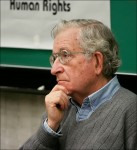

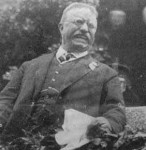
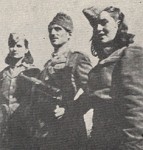
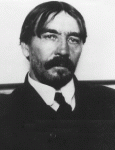



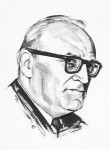

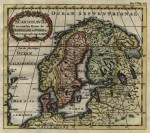

 En 1968, le mariage de Röhl avec Ulrike Meinhof connaît l’échec. Chacun des époux tente de prendre le contrôle du journal. Röhl emporte le combat. Ulrike Meinhof entre dans la clandestinité et fonde, avec Baader, la « Fraction Armée Rouge ». Röhl condamne ce type de combat voué à l’échec, hystérique et sans fantaisie. En 1993, Röhl rédige un doctorat sous la houlette de l’historien Ernst Nolte, professeur à l’Université Libre de Berlin. Il défend son professeur, victime d’une vindicte de gauche et d’une campagne de presse hystérique lors de la fameuse « querelle des historiens », animée principalement par le philosophe Jürgen Habermas. Le sujet de sa thèse de doctorat est intéressant : « Nähe zum Gegner. Die Zusammenarbeit von Kommunisten und Nationalsozialisten beim Berliner BVG-Streik von 1932 » (= Proximité avec l’adversaire. La coopération des communistes et des nationaux socialistes lors de la grève des transports à Berlin en 1932). Après avoir brisé quelques lances pour l’honneur de Nolte, Röhl [photo 2] quitte alors le petit monde étriqué de la gauche allemande et rejoint le parti libéral, où il retrouve le juriste et constitutionaliste Alexander von Stahl, l’historien Rainer Zitelmann et le biographe d’Ernst Jünger, Heimo Schwilk, dans un cénacle critique, « Liberale Offensive », qui cherche à donner un tonus national au parti, comme en Autriche.
En 1968, le mariage de Röhl avec Ulrike Meinhof connaît l’échec. Chacun des époux tente de prendre le contrôle du journal. Röhl emporte le combat. Ulrike Meinhof entre dans la clandestinité et fonde, avec Baader, la « Fraction Armée Rouge ». Röhl condamne ce type de combat voué à l’échec, hystérique et sans fantaisie. En 1993, Röhl rédige un doctorat sous la houlette de l’historien Ernst Nolte, professeur à l’Université Libre de Berlin. Il défend son professeur, victime d’une vindicte de gauche et d’une campagne de presse hystérique lors de la fameuse « querelle des historiens », animée principalement par le philosophe Jürgen Habermas. Le sujet de sa thèse de doctorat est intéressant : « Nähe zum Gegner. Die Zusammenarbeit von Kommunisten und Nationalsozialisten beim Berliner BVG-Streik von 1932 » (= Proximité avec l’adversaire. La coopération des communistes et des nationaux socialistes lors de la grève des transports à Berlin en 1932). Après avoir brisé quelques lances pour l’honneur de Nolte, Röhl [photo 2] quitte alors le petit monde étriqué de la gauche allemande et rejoint le parti libéral, où il retrouve le juriste et constitutionaliste Alexander von Stahl, l’historien Rainer Zitelmann et le biographe d’Ernst Jünger, Heimo Schwilk, dans un cénacle critique, « Liberale Offensive », qui cherche à donner un tonus national au parti, comme en Autriche.
